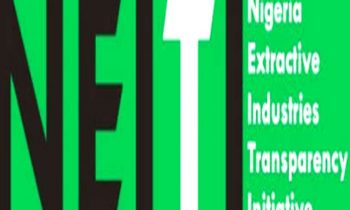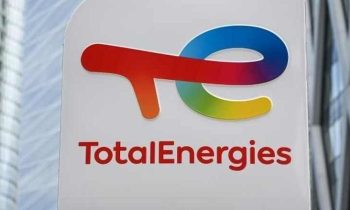
Olusola Bello
The Nigeria Extractive Industries Transparency Initiative (NEITI) has called on Joint Venture (JV) partners of the Nigerian National Petroleum Corporation (NNPC) to reconcile a $183.07 million discrepancy in their 2019 transport accounts.
NEITI in its latest report on the oil and gas industry covering 2019,noted that whereas a total of N571.41 was reported as transportation fees by the JV partners in the year under review, NNPC’s financial statement indicated it was actually $334.34 million.
The transparency initiative, in its 12th cycle report on the oil and gas industry, therefore called on both parties to reconcile the $183 million difference to ensure that the discrepancy is sorted out in the next report.
The NEITI oil and gas report did make recommendations on how to improve transparency and accountability in the sector, it recommends that the Office of the Accountant General of the Federation (OAGF) should advice the NNPC to prepare its budget on a gross basis by stating its gross revenue and costs.
The report noted that the practice if adopted, would improve transparency and accountability in NNPC’s transactions on behalf of the federation.
It observed that individual companies were reporting crude oil losses higher than the ‘fiscalised’ production and recommended that the DPR should take steps to reduce losses by the terminal operators.
It also highlighted the outstanding liabilities by companies as of 2019 year end and advised the respective government agencies to recover the debts.
A total sum of $517.41 million, the agency said was reported as transportation fees by the JV companies. But Of this amount, NNPC confirmed $334.34 million while a total of $183.07 million is under reconciliation by the NNPC.
NNPC it stated should conclude the detailed reconciliation, stating further that thisThis should be carried out on a regular basis as a mechanism for checks and balances,” the report noted.
The agency also called on the Department of Petroleum Resources (DPR) to reconcile the disparity in its reporting processes which it said poses a challenge on representation of NNPC data that has been systematically disclosed.
“NNPC should align its reporting systems with the DPR, being the entity statutorily responsible for metering in the industry,” it added.
Recently, the Group Managing Director of the NNPC, Mallam Mele Kyari, had called on International Oil Companies (IOCs) operating in the country to be more accountable to the Nigerian people and not just to their respective shareholders and companies.
Speaking on the third day of the Nigeria International Petroleum Summit (NIPS) in Abuja as head of the “Chief Executive Officers’ Roundtable”, Kyari had stated that although oil companies plying their trade in the country have a responsibility to their home companies, they must also strive to incorporate the interest of the government and its people.
He had said: “For instance, my partners here, we will expect that they operate responsibly, that they are transparent to all of us, not just to the shareholders of the external nature , but also to us and even to Nigerians.
“ And as you do this, they will expect you to produce at the least of costs that is possible, because what that means is that there’ll be more tax revenues and also probably better margins for the national oil company.”
Government entities covered by the report include the Federal Inland Revenue Service (FIRS), DPR, NNPC and the Nigerian Content Development and Monitoring Board (NCDMB).
Others are: Niger Delta Development Commission (NDDC), federal ministry of finance, Central Bank of Nigeria (CBN) and Office of the Accountant General of the Federation.
“NEITI recommends that NNPC should carry out detailed reconciliation on transportation revenues regularly as a mechanism for checks and balances,” the document stressed.
The report further disclosed that in 2019, Shell Petroleum Development Company (SPDC) produced 78 million barrels, Aiteo had 11 million, Eroton was 10.6 million barrels, New cross produced 6.1 million and Chevron drilled 60.4 million barrels.
In addition, it showed that Agip produced 5.9 million, Mobil’s share was 92.7 million, Total drilled 41 million, Belema had 2 million, Seplat produced 1.3 million while Pan Ocean Oil produced 469, 000 barrels of oil for the year.
The total barrels produced in 2019 was 310 million as opposed to 314 million in the previous year. NNPC’s share was 180.8 million barrels in 2019, while the JV partners had a cumulative share of 129.4 million barrels.
Those that declared force majeure during period under review are Aiteo’s Nembe Creek Line, Shell’s Bonny terminal, Total’s Amenam.
The report also noted losses due to theft and sabotage which totaled 42.2 million barrels and was valued at $2.7 billion, using an average of $65.6 per barrel, but was 11 million barrels less than the loss recorded in 2018.
In the same vein, 27.1 million barrels were lose in 2015, with 101.05 in 2016, 36.4 million in 2017 and 53.28 million in 2018.
Also given account of crude oil lifted, the report showed that Bonny Terminal, operated by SPDC took the lion’s share with 81.5 million barrels, QIT by Mobil was 80.9 million, Forcados also run by SPDC was 78.1, Agbami operated by Star deep was fourth with 65 million barrels while Bonga, run by SNEPCo was 60.3 million barrels.





